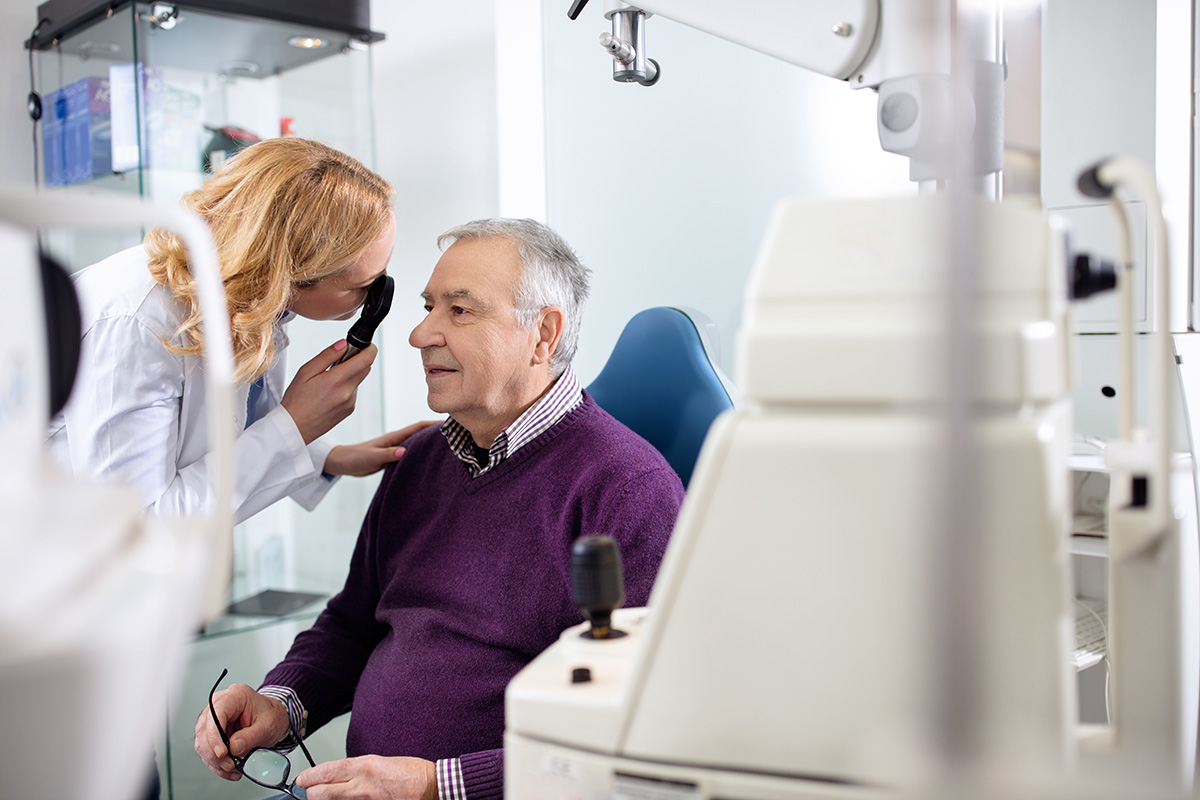Diagnosis & Co-management
Macular Degeneration

Diagnosis & Co-management
Macular Degeneration
Age-related Macular Degeneration
Dr. Tracy K. Giles at Giles Eye Care specializes in diagnosing age-related macular degeneration in its earliest stages, often before symptoms or vision loss occurs. While there is no cure for age-related macular degeneration, early detection and treatment of this disease can minimize or even prevent vision loss.
What is age-related macular degeneration?
Age-related macular degeneration (AMD) is a degenerative eye disease that causes damage to the macula—the part of the retina responsible for sharp, clear central vision. AMD can lead to distorted or blurred central vision, making it difficult to recognize faces, read books, or perform other everyday tasks. It is the leading cause of severe vision loss in individuals aged 50 and older.
What are the signs of age-related macular degeneration?
The main symptoms of age-related macular degeneration include:
- Blurry or fuzzy vision
- A dark, empty area or blind spot in the center of vision
- Visual distortions such as straight lines appearing wavy
- Poor vision in low lighting
- Objects appear smaller when viewed with one eye
Types of age-related macular degeneration
There are two types of age-related macular degeneration: dry and wet. Depending on the type, the disease can progress gradually over years or develop rapidly.
Dry age-related macular degeneration
Dry AMD is the most common type of macular degeneration and develops gradually. It happens when the light-sensitive cells in the macula slowly break down over time due to aging.
In the early stages of dry AMD, there are usually no noticeable symptoms. As the disease advances to the intermediate stage, people may experience mild symptoms such as blurry central vision or difficulty seeing in low light. In the late stages, the disease causes distorted vision (straight lines may appear wavy) and dark spots in the central field of vision.
Wet age-related macular degeneration
Any stage of dry AMD can develop into wet AMD, but wet AMD is always late stage. Wet AMD occurs when abnormal blood vessels grow behind the retina and leak fluid or blood into the macula. While wet AMD progresses faster than dry AMD and typically causes more severe vision loss, both forms can eventually lead to permanent vision loss if left untreated.
The team at Giles Eye Care will test for both dry and wet AMD. Atrophic or dry macular degeneration is the most common and represents about 90% of the cases. Exudative or wet macular degeneration accounts for most legal blindness issues.
What are the risk factors for age-related macular degeneration?
The most significant risk factor for age-related macular degeneration is age. People aged 50 and older are at increased risk of developing AMD over younger groups. Other risk factors include having a family history of AMD, being Caucasian, and smoking. High blood pressure, high cholesterol, and spending a lot of time in the sun without proper eye protection also increase your risk of developing AMD.
Since there are no symptoms in the early stages of AMD, you should see an eye doctor regularly, especially if you have a family history of AMD or other risk factors.
Treatment for age-related macular degeneration
While there are currently no treatments for dry AMD, taking nutritional supplements may slow the progression of the disease and lower your risk of getting late-stage or wet AMD.
If you are diagnosed with wet AMD, symptoms usually appear suddenly and worsen quickly. Fortunately, treatments such as photodynamic therapy, laser surgery, and anti-VEGF injections help prevent vision loss. Your eye doctor at Giles Eye Care can assess your visual and eye health needs and recommend the best treatment for your specific case.
Schedule a comprehensive eye exam at Giles Eye Care
People of all ages should get regular comprehensive eye exams, especially if they are at high risk of developing AMD. If it’s been a while since your last eye exam, schedule an appointment at Giles Eye Care in Portland, ME. We offer comprehensive eye exams to diagnose a range of eye diseases and other issues, including age-related macular degeneration.
It’s rare to lose all your sight with age-related macular degeneration but your sight will be compromised. Dr. Giles will offer a variety of treatments to maintain and maybe improve your situation.
